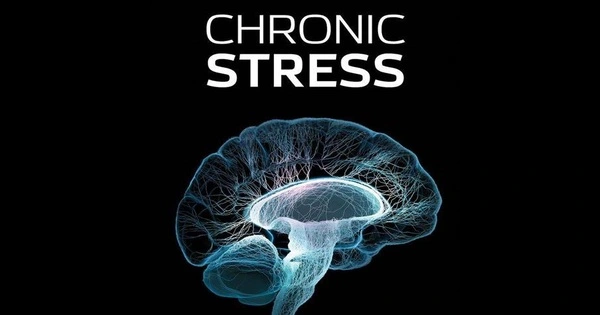Chronic stress is a type of stress that lasts for an extended period of time and has a negative impact on both physical and mental health. A long-term internal or external stressor causes a physiological or psychological response. Unlike acute stress, which is generally associated with specific events or situations, chronic stress lasts for a long time, often weeks, months, or even years. The stressor, whether a physically present event or recalled, has the same effect and causes a chronic stress response.
There are many types of chronic stresses, but the majority involve relatively long-term issues, disputes, and threats that people face on a daily basis. In addition, various chronic stresses, such as “neighborhood environment, financial strain, interpersonal stress, work stress, and caregiving,” have been linked to disease and mortality.
Causes of chronic stress can vary widely and may include:
- Work-related stress: Constant pressure at the workplace, long working hours, job insecurity, and high demands can contribute to chronic stress.
- Financial stress: Persistent financial difficulties, such as debt, unemployment, or ongoing economic instability, can be a significant source of chronic stress.
- Relationship issues: Ongoing conflicts, unhealthy relationships, or the burden of caregiving responsibilities can lead to chronic stress.
- Health problems: Managing a chronic illness, dealing with pain, or providing care for a loved one with health issues can contribute to stress over an extended period.
- Traumatic experiences: Prolonged exposure to traumatic events, such as abuse or violence, can lead to chronic stress.
- Major life changes: Events like divorce, bereavement, or relocation can be significant stressors when they persist over time.
Stress reactions, such as the fight or flight response, are critical. Because of the environment’s complexity, it is always changing. To navigate our surroundings, we require a system that can respond to perceived hostile and harmful circumstances. Thus, the stress response system serves as an adaptive process that actively makes modifications to restore homeostasis in the organism. For example, the body will engage in an endocrine system response, releasing corticosteroids. Sterling and Eyer (1988) introduced the term allostasis to describe this process.
Significant evidence has been gathered to demonstrate the stress response as a short-term adaptive system. The initial effects of stress hormones are advantageous in a specific short-term condition. The system is arguably a defensive protection against threats and does not normally constitute a health danger.
















